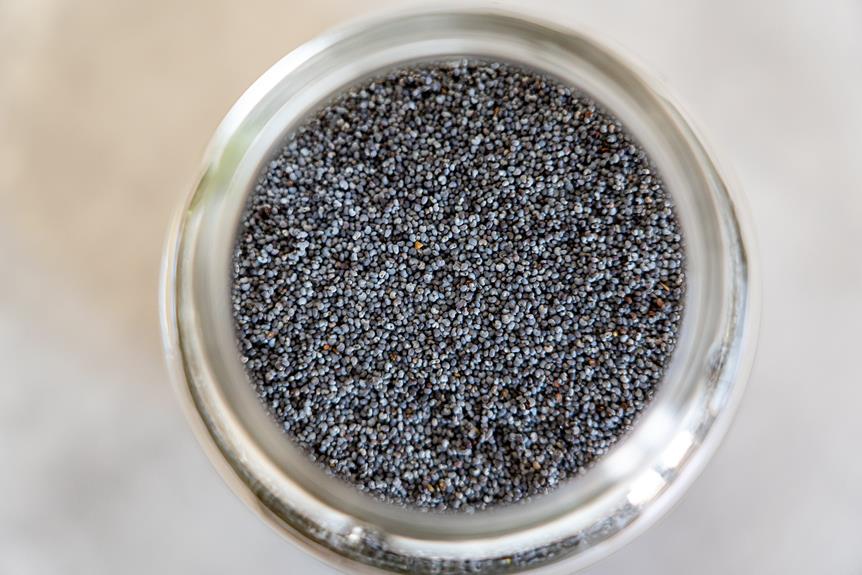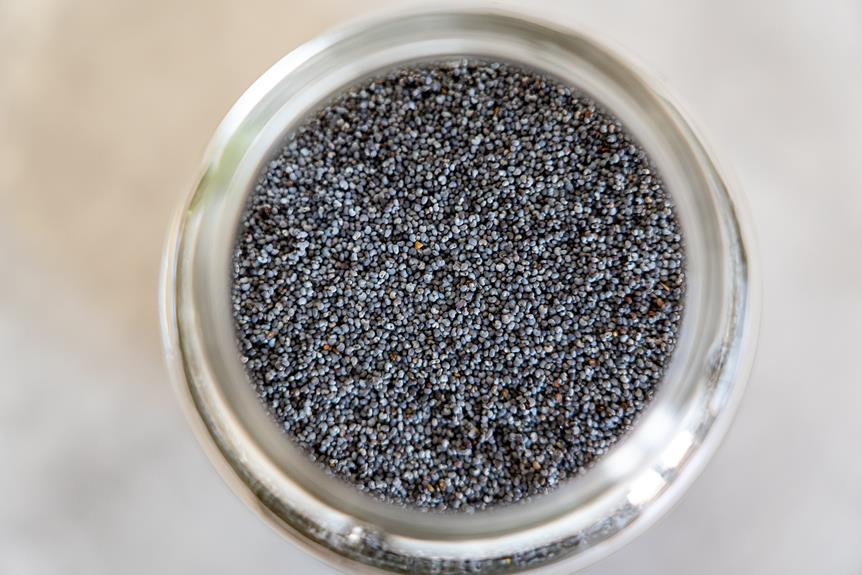Do you often find yourself struggling with constipation? Have you ever wondered what dietary fiber can do to help alleviate this uncomfortable condition? Well, wonder no more! In this discussion, we will explore the benefits of dietary fiber for constipation and how it can help promote regular bowel movements. From the types of fiber to the recommended daily intake and high-fiber foods, we will delve into all the essential information you need to know. So, let's dive right in and discover the wonders of dietary fiber for constipation relief.
Key Takeaways
- Dietary fiber adds bulk to stool and stimulates natural intestinal contractions, preventing and relieving constipation.
- Soluble fiber dissolves in water and forms a gel-like substance, while insoluble fiber adds bulk to stool.
- Aim for 25-30 grams of fiber per day for optimal bowel health and gradually increase fiber intake to prevent worsening constipation.
- High-fiber foods and supplements promote regular bowel movements, improve gut health, and should be accompanied by adequate hydration.
Types of Dietary Fiber
There are several types of dietary fiber that can help relieve constipation. These types of fiber are classified into two categories: soluble fiber and insoluble fiber. Soluble fiber dissolves in water and forms a gel-like substance in your digestive tract. This type of fiber can be found in foods such as oats, barley, nuts, seeds, lentils, and some fruits and vegetables. Insoluble fiber, on the other hand, does not dissolve in water and adds bulk to your stool. It can be found in foods like whole wheat flour, wheat bran, brown rice, and most fruits and vegetables.
Both types of fiber are important for preventing and relieving constipation. Soluble fiber helps soften your stool and makes it easier to pass through your digestive system. It also helps regulate your bowel movements by slowing down the absorption of sugar and cholesterol in your body. Insoluble fiber, on the other hand, adds bulk to your stool and helps it move more quickly through your intestines. This can help prevent constipation by reducing the amount of time it takes for waste to pass through your digestive system.
It's important to note that increasing your fiber intake too quickly can actually worsen constipation. It's recommended to gradually increase your fiber intake and drink plenty of water to help your body adjust. Aim for a total fiber intake of around 25 to 30 grams per day for optimal bowel health.
How Dietary Fiber Prevents Constipation
To understand how dietary fiber prevents constipation, it is important to recognize its role in promoting regular bowel movements and maintaining optimal digestive health. Dietary fiber adds bulk to your stools, making them larger and softer, which helps to stimulate the natural contractions of your intestines. This increased bulk and softness allows stools to pass more easily through your digestive system, preventing them from becoming dry and hard, which can lead to constipation.
When you consume foods high in dietary fiber, such as whole grains, fruits, vegetables, and legumes, it adds water to your stools. This water helps to soften your stools, making them easier to pass. Additionally, dietary fiber acts as a natural stool softener by absorbing water and increasing the moisture content in your intestines, further preventing constipation.
Another way dietary fiber prevents constipation is by acting as a prebiotic. Prebiotics are a type of fiber that feed the beneficial bacteria in your gut, helping them to thrive and promote optimal digestive health. These bacteria play a crucial role in maintaining a healthy gut environment and preventing constipation.
Recommended Daily Intake of Fiber
Now let's talk about the recommended daily intake of fiber. It's important to understand how fiber affects your bowel movements and why it is beneficial for preventing constipation. Additionally, there are different types of dietary fiber, each with its own unique benefits.
Fiber and Bowel Movements
Getting enough fiber in your diet is crucial for maintaining regular bowel movements. Fiber adds bulk to your stool, making it easier to pass through your digestive system. Here are four ways fiber helps to keep your bowel movements regular:
- Fiber absorbs water, softening your stool and preventing it from becoming too hard.
- It adds weight to your stool, helping to stimulate the muscles in your intestines and promote movement.
- Fiber acts as a natural cleanser, sweeping waste and toxins out of your digestive system.
- It promotes the growth of healthy bacteria in your gut, which aids in digestion and overall gut health.
Types of Dietary Fiber
There are different types of dietary fiber that you should include in your daily intake, in order to meet the recommended amount. Soluble fiber is found in foods like oats, beans, and fruits. It dissolves in water and forms a gel-like substance in your stomach, which helps soften your stool and make it easier to pass. Insoluble fiber, on the other hand, is found in foods like whole grains, nuts, and vegetables. It adds bulk to your stool and helps it move through your digestive system more quickly. Both types of fiber are important for maintaining regular bowel movements and preventing constipation. Aim to include a variety of foods rich in both soluble and insoluble fiber in your diet to ensure you're getting the benefits of both.
High-Fiber Foods for Relieving Constipation
To effectively relieve constipation, incorporate high-fiber foods into your diet. These foods can help add bulk to your stool and promote regular bowel movements. Here are some examples of high-fiber foods that you can include in your daily meals:
- Whole grains: Opt for whole wheat bread, brown rice, and oats. These grains are rich in fiber and can help soften your stool.
- Fruits and vegetables: Include a variety of fruits and vegetables in your diet, such as apples, berries, broccoli, and carrots. These are excellent sources of fiber and can aid in digestion.
- Legumes: Beans, lentils, and chickpeas are packed with fiber. Adding them to soups, salads, or side dishes can provide a substantial amount of dietary fiber.
- Nuts and seeds: Almonds, chia seeds, and flaxseeds are not only a great source of healthy fats but also contain high levels of fiber. Sprinkle them on top of your yogurt or salads for an extra fiber boost.
Fiber Supplements for Constipation Relief
Now let's talk about fiber supplements for relieving constipation. There are different types of fiber supplements available, such as psyllium husk, methylcellulose, and wheat dextrin. These supplements can provide additional fiber to your diet and help promote regular bowel movements.
Types of Fiber Supplements
One option for relieving constipation is to incorporate fiber supplements into your diet. These supplements can help add bulk to your stool and make it easier to pass. Here are four types of fiber supplements that you can consider:
- Psyllium husk: This supplement is derived from the seeds of the Plantago ovata plant. It absorbs water and forms a gel-like substance that helps soften the stool.
- Methylcellulose: Made from plant fibers, this supplement also absorbs water and adds bulk to the stool. It is gentle on the stomach and suitable for long-term use.
- Inulin: Derived from chicory root, inulin is a soluble fiber that promotes the growth of beneficial gut bacteria. It can help regulate bowel movements and relieve constipation.
- Wheat dextrin: This soluble fiber supplement is derived from wheat starch. It adds bulk to the stool and helps improve bowel regularity.
Benefits of Fiber Supplements
Incorporating fiber supplements into your diet can provide significant relief from constipation by promoting regular bowel movements and adding bulk to your stool. Fiber supplements are a convenient and effective way to increase your fiber intake, especially if you struggle to consume enough fiber-rich foods. Here are some benefits of fiber supplements for constipation relief:
| Benefits of Fiber Supplements |
|---|
| 1. Promotes regular bowel movements |
| 2. Adds bulk to the stool |
| 3. Softens the stool |
| 4. Reduces straining during bowel movements |
| 5. Helps maintain bowel regularity |
Tips for Increasing Fiber Intake
To boost your fiber intake, try incorporating these simple yet effective tips into your daily routine:
- Choose high-fiber foods: Fill your plate with fruits, vegetables, whole grains, and legumes. These foods are naturally high in fiber and can easily be incorporated into your meals and snacks. Think of colorful berries, crunchy broccoli, hearty oats, and satisfying lentils.
- Snack on fiber-rich options: Swap out your usual unhealthy snacks for fiber-rich alternatives. Reach for a handful of almonds, a sliced apple with peanut butter, or a bowl of air-popped popcorn. These snacks not only provide a satisfying crunch but also contribute to your daily fiber intake.
- Add flaxseeds or chia seeds: Sprinkle a tablespoon of flaxseeds or chia seeds onto your yogurt, oatmeal, or smoothies. These tiny powerhouses are packed with fiber and also provide essential omega-3 fatty acids, which have numerous health benefits.
- Experiment with whole grains: Instead of refined grains like white rice and white bread, opt for whole grain alternatives. Try brown rice, quinoa, whole wheat bread, or whole wheat pasta. These options retain more of the beneficial fiber and nutrients found in the whole grain.
Frequently Asked Questions
What Are Some Common Causes of Constipation?
Some common causes of constipation include a lack of dietary fiber, not drinking enough water, and a sedentary lifestyle. Not getting enough fiber can slow down digestion and make it harder for stools to pass through your intestines. Drinking enough water is important because it helps soften stools and makes them easier to pass. Being physically inactive can also contribute to constipation because exercise helps stimulate bowel movements.
Can Certain Medications Contribute to Constipation?
Certain medications can contribute to constipation. It's important to be aware of the potential side effects of the medications you are taking. Certain pain medications, such as opioids, can slow down the movement of your digestive system, leading to constipation. Other medications like antidepressants, antacids, and iron supplements can also have constipating effects. If you are experiencing constipation as a result of your medication, it is recommended to speak with your healthcare provider to discuss possible solutions.
Are There Any Lifestyle Factors That Can Worsen Constipation?
There are indeed lifestyle factors that can worsen constipation. Factors such as a lack of physical activity, not drinking enough water, and a diet low in fiber can all contribute to constipation. It's important to stay active, stay hydrated, and ensure you're getting enough fiber in your diet. By making these lifestyle changes, you can help alleviate constipation and promote regularity in your bowel movements.
Is Constipation More Common in Certain Age Groups?
Constipation can affect people of all ages, but it may be more common in certain age groups. Factors like a sedentary lifestyle or a diet low in fiber can contribute to constipation. To relieve constipation, it's important to include dietary fiber in your meals. Fiber adds bulk to your stool and helps it move through your digestive system more easily. So, make sure to consume foods like fruits, vegetables, and whole grains to promote regular bowel movements.
How Long Does It Take for Dietary Fiber to Relieve Constipation Symptoms?
How long does it take for dietary fiber to relieve constipation symptoms? Well, the time it takes for dietary fiber to work its magic can vary from person to person. Some people may experience relief within a few days, while for others it may take a little longer. It's important to give your body time to adjust to the increased fiber intake and to stay consistent with your dietary changes. Remember, patience is key when it comes to relieving constipation with dietary fiber.




